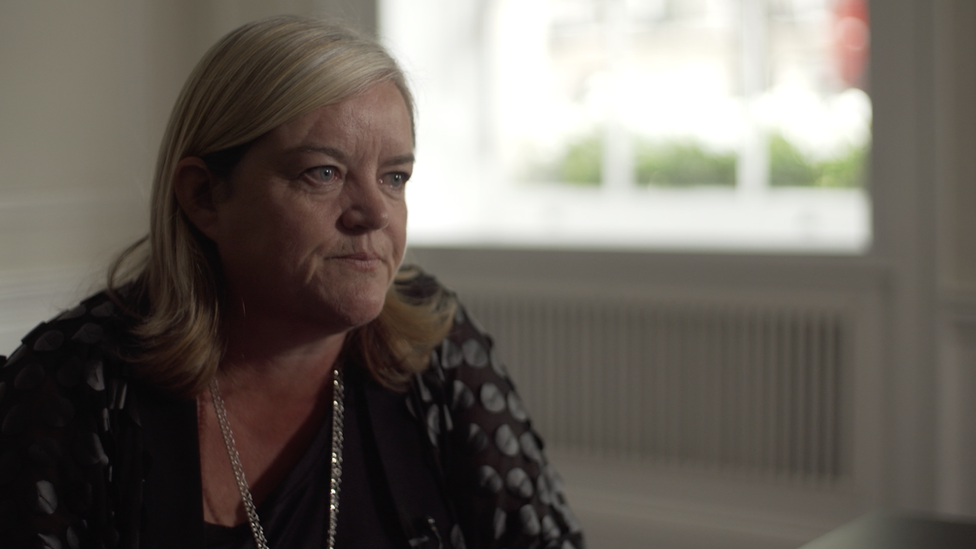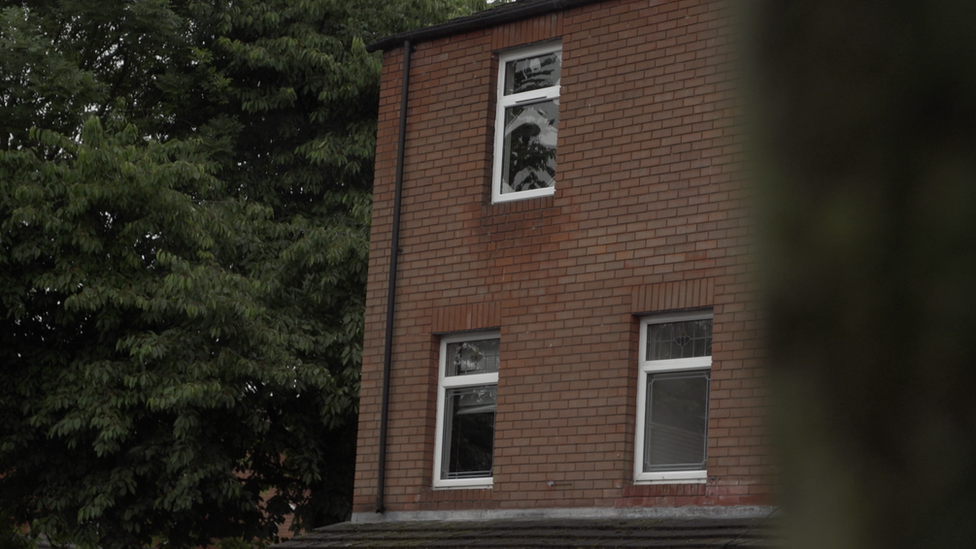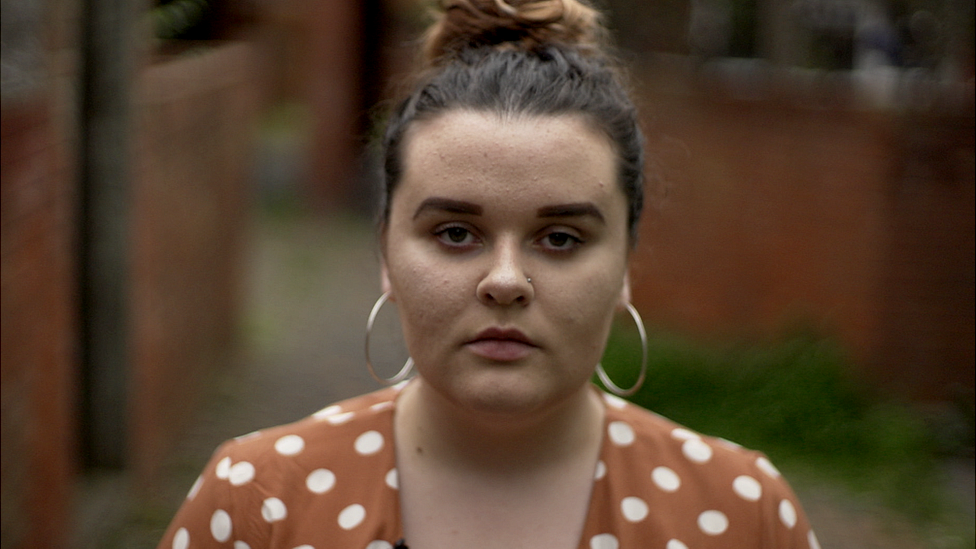Children as young as 11 placed in unregulated care homes
- Published
The findings of this BBC investigation on children in care have been called "a scandal"
Children as young as 11 years old are illegally being placed in unregulated homes in England, the BBC has learned.
Housing a child in care in an unregulated home is against the law if the child is under the age of 16.
Leaked research also reveals children who should be placed in secure children's homes for their own safety are being housed in such homes too.
The government says "no child should be placed at risk - especially the most vulnerable in our society".
Unregulated homes, often known as semi-independent or supported accommodation, offer support and not care. They are increasingly being used to house vulnerable children, many of whom are recognised as at risk of child sexual exploitation or from "county lines" criminal exploitation.
BBC News has obtained findings from an unpublished report on the use of unregulated and unregistered provision for children in care produced for the Department for Education for England.

Louise Casey says regulation for supported accommodation is needed immediately
More than 20 councils were asked about their use of such placements.
Three said they have placed children and young people in unregulated provision on a short-term basis while waiting for a "secure bed" - understood to refer to a secure children's home - to become available.
Placing a child with these needs in an unregulated placement is "an astonishing abdication of responsibility", says Ann Coffey MP, who chairs the All Party Parliamentary Group (APPG) for Runaway and Missing Children and Adults.
"A child is often assessed for a secure placement for their own safety, it is a serious step to take".
Secure children's homes are run by councils and are intended to hold children from the age of 10. Many are placed there for their welfare and are at risk of going missing.
Local authorities also told the research team that at least one child as young as 11 years old had been placed in such accommodation.
The regulator Ofsted says there is nothing in law that allows an unregistered home to take in under 16 year olds, unless for a holiday or for "cultural, educational, recreational or sporting purposes".
Ms Coffey says no council "has any business" placing someone of that age in an unregulated home. "A child aged 11 cannot manage simply through support.
"It is unbelievable and shameful that we have taken these children into care and placed them here."
In a separate investigation, the BBC this week revealed there have been over a dozen investigations launched into so-called "organised and complex abuse" involving young people who lived in unregulated homes in the last four years.

A BBC News investigation into unregulated homes found that one was subject to police surveillance
Dame Louise Casey, who led the investigation into Rotherham Council after more than 1,400 children were sexually exploited in the town, said the revelations of inadequate supervision and support were a "scandal".
The BBC found one child had been trafficked to the West Midlands while placed in a home, and a different placement was under police surveillance over concerns about criminal activity.
Local authorities are responsible for checks on unregulated homes in England and Wales. In Scotland and Northern Ireland, the homes are regulated although not to the same standard as children's homes.
Councils in England are increasingly putting young people in semi-independent or supported accommodation because they cannot match the needs of some children or afford the cost of some registered homes.
'Breaking point'
This year, Hertfordshire Council says it was offered a placement for one person with complex needs at a cost of £19,000 a week.
Even semi-independent accommodation can be hugely expensive. Five councils say they spent more than £250,000 a year on an individual child's placement last year, according to freedom of information requests received by BBC News.
Half of England's £8.6bn children's services budget is now spent on the 73,000 young people in care.
In May, the Housing, Communities and Local Government Committee said Children's Services were at "breaking point" and current funding levels are unsustainable.
In a statement, the Department for Education in England said: "Local authorities are required by the law to ensure that accommodation for children in care or those leaving care is high-quality and, most importantly, safe.
"They are held accountable for the care they provide to vulnerable children by Ofsted," it added.
- Published18 September 2019
